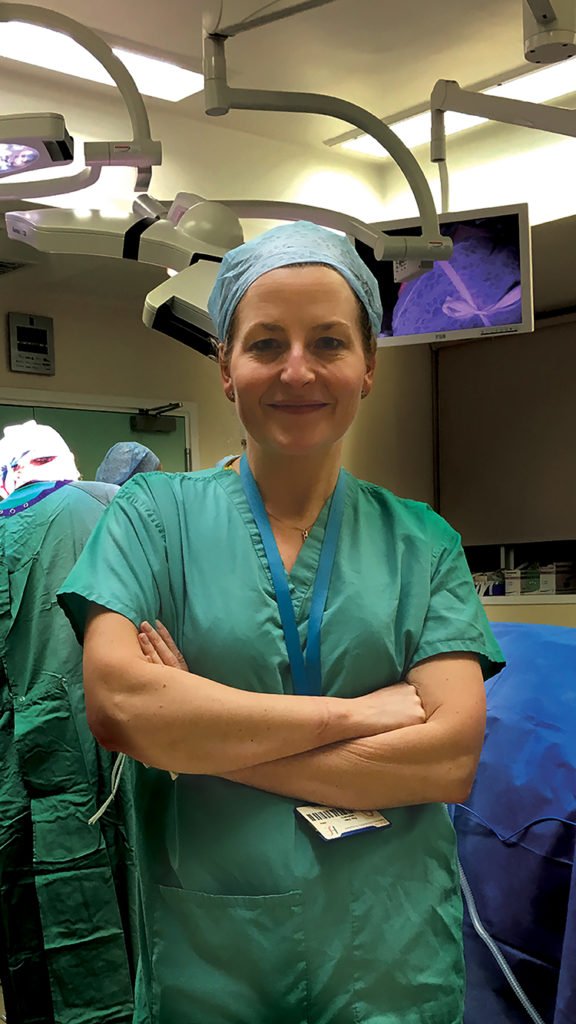The intern year, which demarcates the transition from student to doctor, is currently the focus of a major reform programme. Catherine Reilly reports
Certain factors have limited the “effectiveness” of the intern year, a pivotal time in a doctor’s early professional development, according to a progress report on its “modernisation”.
Lack of “an effective system” to ensure comparable content and quality of education, training and experience across the six intern networks is cited. The intern year has also been “relatively under-funded” compared to postgraduate specialist medical training.
These details are outlined in Modernisation of the Intern Year Project, Progress Report, December 2018-August 2019, obtained from the HSE under Freedom of Information (FoI) law.
In his message, Prof Frank Murray, Director of HSE National Doctors Training and Planning (NDTP), wrote that the environment in which doctors practised in Ireland had changed, presenting “several extra challenges”.
“It is appropriate now to review the intern year with a view to modernisation. This project, ably led by Dr Gozie Offiah, will address many issues which impact on the intern year.”

In a separate paper, also obtained via FoI, the HSE and Medical Council stated that a “fragmented” governance system limited their ability to undertake their statutory responsibilities efficiently, in regard to the intern year (see panel).
In 2017, with such issues in mind, the NDTP and Council established the medical intern board to develop and oversee reforms.
A medical intern unit was founded in May 2018 and operates under the board. It has been reviewing various aspects of the intern year with input from stakeholders.
Preparedness to practice
Inconsistencies in clinical training pre-date the intern year, stated the progress report. It cited the example of clerkships, ie, when a medical student observes the work of an intern at a hospital site.
“A report on the six medical schools in Ireland from the Medical Council describes a variation in the period of student clerkship that takes place, ranging from two-to-25 weeks,” it outlined.
“This variability requires further review and clarification as to the recommended standards and more importantly, identifying the optimum learning opportunities provided by clerkship.”
This aspect would need to be driven by the medical schools, in collaboration with the medical intern unit.
Standardising intern induction and ensuring payment were also goals of the modernisation project. During 2018, representatives of the medical intern board and NDTP met with officials from the Department of Health, which supported induction payment in principle.
Significant developments have occurred since the report was authored.
Five days’ induction pay was introduced from July 2019, against the background of claims submitted by the IMO to the Workplace Relations Commission (WRC) and potential industrial action. Issues remain in regard to interns not being paid for induction-related work outside the agreed 39-hour week, which has prompted a further set of claims to the WRC by the IMO.
Bullying
The progress report did not specifically mention bullying, a concern identified in the Medical Council’s Your Training Counts and clinical site inspection reports. However, this matter has been discussed at meetings of the medical intern board, according to minutes obtained by the Medical Independent (MI).
At its meeting in September, Dr Justin Brophy, Chair of the Forum of Irish Postgraduate Medical Training Bodies, referred to reports of bullying in Your Training Counts, “and the fact that perhaps interns are not aware of how to respond to incidents appropriately”.
“It was agreed that action is required with regard to incidents of bullying and it must be communicated to interns that there is a process in place to report same.”
Intern posts
The quality and quantity of intern posts are being examined as part of the modernisation project.
There was “a feeling that the current number of intern places is insufficient to match the number of graduates from Irish medical schools”.
“Representatives from NDTP met with personnel from the Department of Health on 3 August last year [2018] to discuss intern numbers,” stated the report.
“It was acknowledged by all stakeholders that the Fottrell Report is no longer relevant with regard to intern numbers and is considered outdated, considering workforce projections, patient safety issues and European Working Time Directives (EWTD).
“If there is capacity within the HSE and sufficient training opportunities to fund additional posts, then this should be progressed but consideration will have to be given to where the posts are located. Reports following Medical Council site visits have also referred to the need for an increase in intern numbers to ensure patient safety and comply with EWTD legislation.”
In April 2019, NDTP representatives met with Ms Anne Murphy, Senior Human Resources Lead, HSE National Acute Operations, to discuss the process with regard to increasing intern numbers and securing the necessary funding and approval.
“Cost implications will have to be considered in this regard through engagement with [the] HSE strategic planning department and a review of structures at clinical sites will be important when allocating additional posts,” according to the progress report.
Around 1,200 doctors graduate from Irish medical schools each year, but there are only 734 intern places (approximately 680 are CAO candidates).
It remains to be seen when an increase may occur. In October, the Department informed MI the current number of intern posts “more than meets the domestic demand, with limited capacity to meet demand outside of Ireland’s domestic needs”.
The HSE’s spokesperson told MI: “There will be no increase in the number of interns for 2020 — this work is ongoing with stakeholders as part of the modernisation of the intern year project.”
Meanwhile, the medical intern unit is currently reviewing elements of the intern matching process, including centile rank calculations and looking at international best practice.
On-call
The progress report cited the need for guidelines in regard to interns unable to carry out full duties, to support them to successfully complete training wherever possible.
Several interns in recent times had been taken off on-call duties by occupational health due to stress. However, a significant amount of learning takes place while on-call, leading to difficulties assessing interns’ performance.
A voluntary disclosure policy was also in development. This policy would “assist students who have a long-term health condition that could, at some time during their studies, impact on their ability to learn and study effectively,” according to the report.
“The focus will be to empower students to help manage their own condition and share information with those who may need to know about it. It is anticipated that it will remove or reduce obstacles and enable more effective learning for the student.”
The resultant “health passport aids a clearly-defined and agreed process for the transfer of information with regard to any issues or difficulties a student may encounter from medical school to internship and on to postgraduate training”.
The HSE informed MI the proposed health passport “will allow interns to easily record information about any issues or difficulties they may have. The passport is for intern use only and may be shared as the intern sees fit.”
Curriculum/EPAs
The Medical Council and the medical intern board have committed to the development of a national curriculum, implementation of entrustable professional activities (EPAs), and associated assessment tools.
An EPA is a “core unit of professional practice” that can be fully entrusted to a trainee as soon as they have demonstrated the necessary competence to execute the activity unsupervised.
“The proposed implementation of EPAs offers the opportunity to revisit the curriculum and relevant accreditation standards in a coherent, co-ordinated manner, in collaboration and in partnership with intern training networks. It also provides an opportunity to identify gaps in the curriculum like health disparities and cultural competence, quality improvement and patient safety issues, etc.”
Seven EPAs and one personal and professional development (PPD) were identified for interns at the end of their training.
The seven EPAs are — clerk a patient; request and interpret basic investigations; perform essential procedural skills; manage the work of inpatient care; prescribe and monitor drugs and fluids; recognise and manage the deteriorating/acutely unwell patient; and hand over and discharge a patient. The PPD is to engage in personal and professional development.
The timeline for introduction of EPAs is 12-to-18 months, stated the HSE’s spokesperson.
IMO feedback
Many aspects of the modernisation project intersect with industrial relations.
While interns are represented in the modernisation project, the IMO is not a party to the various groups/committees under its auspices.
According to IMO Industrial Relations Officer Mr Paul Maier, the union had requested “on numerous occasions” a formal role in this process.
Nevertheless, IMO input “has been sought out and we have provided that input.
“I think it would be great to have even more impact on that, but generally speaking, I think our voice has been heard loud and clear through the actions we have taken and through the information we have provided directly to the NDTP and representatives of the other intern networks.”
Mr Maier emphasised that the IMO was not suggesting it had a role in setting or regulating educational standards.
However, “if you are setting a standard for the level of training required, that obviously impacts the number of hours that need to be discharged, and if you are setting a standard for types of rotations that need to be worked on, that may change the way that our members go from location-to-location for their employment…
“Sometimes there is an attempt to remove the IMO from decisions that have been deemed to be strictly educational in nature, and I think that poses a challenge, in that educational decisions, more often than not, always will have industrial relations aspects to them, and that engagement with the IMO is engagement with NCHDs and with members we represent.”
According to Mr Maier, EWTD compliance, bullying, workplace respect, and transfer/sharing of tasks are among the key issues facing interns and doctors in other grades.
Medical school deans
Head of the Irish Medical Schools Council (IMSC), Prof Carmel Malone, said it was “very supportive” of improvements to the intern year.
“Whilst the intern year is complex, with many stakeholders, including the IMSC, NDTP and Medical Council, there has never been greater cohesion or unified sense of purpose in our commitment to improving and enhancing this important year.”
Prof Malone described as “inevitable” that an increase in intern numbers will be required to address service gaps and provide appropriate learning opportunities for interns in a supportive environment.

“One of the pieces of work in the modernisation project is to look at increased funding for intern education and training,” she noted. “Education is expensive and adequate funding is required to ensure the delivery of high-quality education, which requires resources both human and material. For example, having additional funding would allow the medical schools and intern networks to improve the delivery of training and assessment using e-learning and mobile platforms.”
On preparedness for practice, she said this was “at the core of all curricula in Irish medical schools”.
“Academics in all schools are engaged in constant research and review to enhance the quality of training delivered to all healthcare professionals. Irish medical schools are leaders in many areas of medical education, including healthcare simulation and human factors in patient safety. The IMSC remains committed to encouraging excellence in medical education delivery and curriculum innovation based on high-quality research.”
According to the HSE, the current funding for intern training is outlined in the service level agreement between each medical school and the HSE and these details are covered by a confidentiality clause.
“Increased funding levels through the modernisation of the intern year project have not yet been determined.”
Who governs the intern year?
The “fragmented” governance system for the intern year has compromised the ability of the Medical Council and HSE to undertake their statutory roles in an efficient manner, according to a paper they produced.
The paper by HSE NDTP and the Council, dated September 2017 (amended in December 2019), outlined the manner in which intern year governance should be reformed.
“The intern year is a new medical graduate’s first experience of working as a doctor and it takes place in a heavily supervised environment,” according to the paper. “Satisfactory completion of the year is a requirement for registration with the MCI [Medical Council of Ireland] and the legal right to independent practice.”
The HSE and Council believed the biggest issue facing the intern year was the lack of a centralised approach to ensure a comparable intern experience across all the intern networks.
“The result of the current fragmented governance system is non-comparable processes across intern networks and the absence of a national approach to issues such as induction, assessment, leave (including maternity leave) policy, remediation, QA [quality assessment] of intern posts and MCI sign-off on completion of the year, amongst others. The current approach compromises the ability of both the MCI and the HSE to undertake their statutory roles in an efficient manner.”
Under the Medical Practitioners Act 2007, the Council has a number of responsibilities in regard to internship, such as approving posts and inspecting the sites where intern training is conducted, to ensure compliance with guidelines.
The HSE’s legislative responsibilities include, among other aspects, annual assessment of the number of intern training posts required by the health service.
Under an EU directive, basic medical training comprises at least six years of study or 5,500 hours of theoretical and practical training provided by (or under the supervision of) a university. To ensure that all of the medical degree programmes available in Ireland meet this criteria, the intern year is considered part of undergraduate basic medical training.
The medical schools “play an active role” in developing, managing and delivering the intern training programme in conjunction with the intern network co-ordinators, the Medical Council, HSE, postgraduate medical training bodies, intern tutors and trainers on clinical sites.
Each medical school is assigned to an intern training network and has appointed a consultant-grade intern network co-ordinator supported by the HSE.
According to the HSE/Council paper, medical schools are contractually obliged to develop and provide the intern training programme through the service level agreement between the university/relevant body and the HSE.
Both the Council and HSE recognised that the intern year had been “relatively under-funded” in comparison to postgraduate specialist medical training and wished to “address this imbalance”, according to the paper.
“A new governance structure will ensure that the benefits of this new investment will be reflected evenly across the intern system.”
The governance structure, which has since been taking shape, involves a medical intern board as a central overarching body with responsibility for the governance and strategic direction of the intern year.
The board has an independent chair with representation from the Council, HSE/NDTP, Intern Network Executive, Irish Medical Schools Council (IMSC), Forum of Irish Postgraduate Medical Training Bodies and National Lead NCHD. “The board will be housed virtually within the HSE and it is proposed that each member have a term of three years.” It reports to the Medical Council and HSE NDTP.
The medical intern unit will implement strategic recommendations of the board and deliver the “operational function of the intern year”.
Prof Carmel Malone, head of the IMSC, commented: “The governance of the intern year has been reviewed and restructured at the end of 2019. This process was led and fully supported by the IMSC. There are many stakeholders within this complex year and the recent revision of governance structure has enhanced the continuum of medical education from undergraduate, through internship, to postgraduate training.
“Furthermore, regional intern
co-ordinators now also sit on the curriculum committees/programme boards of
each medical school to enhance emphasis on preparedness
for practice.”












Leave a Reply
You must be logged in to post a comment.